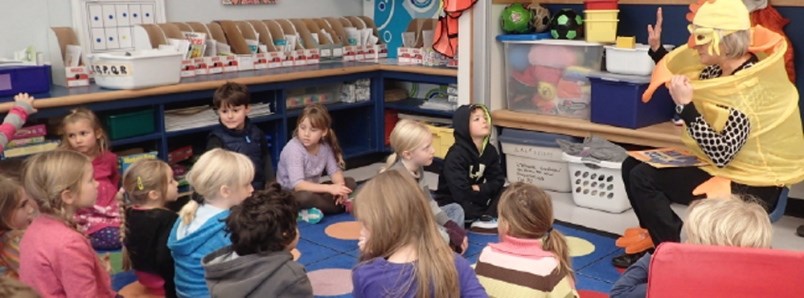The move away from traditional school grades seems to be gathering more momentum.
School District 48 board members are discussing a possible pilot project for Grades 4 to 9, ideally with two classes at each school in Squamish, where students will not receive letter grades from March through June. Grades, however, will be available to parents upon request.
At the December board meeting, district director of instruction for learning services Marilyn Caldwell outlined the latest development of the district’s assessment committee, which has been looking at the matter for the last few years.
“We first started hearing about districts doing this four years ago,” she said. “At that time, our school district did a pilot project with the Ministry of Education on changing the report card from its traditional format.”
Caldwell was joined by several teachers from the committee, some of whom also sit on the instructional leadership committee: Shannon Fieldhouse and Sarah Hain from Brackendale Elementary, Heather Lewis from Don Ross Middle School and Lisa Smart from Myrtle Philip Community School in Whistler.
Each teacher provided arguments and anecdotes for moving away from letter grades, from the point of view of students doing well and those not doing well by the current practice of letter grading.
The matter is expected to be discussed again early in the new year.
The switch, the advocates say, will require a change in thinking – and not only from adults.
“Our students will need training too,” Caldwell said.
The teachers outlined some of the evidence to support the argument over the years from researchers like Alfie Kohn, Carol Dweck and John Hattie. These ideas emphasize the importance of factors like the difference in fixed versus growth mindsets when it comes to school success, and importance of the collective belief of a school’s teachers about a student in determining success.
Behind these ideas is the notion that changes to reporting on students’ work will underscore the need in the future for students to develop certain competencies, to think critically and to work collaboratively.
“Your mindset determines to a large extent how you’re going to live our your life,” Caldwell told The Squamish Chief.
There was some reservation, however, at the board meeting. Trustee Chris Vernon-Jarvis said he liked the idea, but he expects some resistance from parents used to receiving children’s grades.
He also said they were only getting one side of the argument and that there might be questions at the government level over the long term about how students are measured and whether schools are teaching to standards.
“Sooner or later, someone will be asking those questions,” he said. “You need to be ready for that.”
The teachers responded that students will continue to be assessed for core skills such as reading and writing. The December meeting was also the last one for Caldwell, who is retiring. Director of instruction for technology and innovation Peter Jory will take over the portfolio.
“He’s part of the assessment team,” she said. “He’ll now be taking the lead role with that.”
Caldwell also said Jory has a background in secondary education, which should help in light of further changes to the curriculum coming at the Grades 10 to 12 level.



